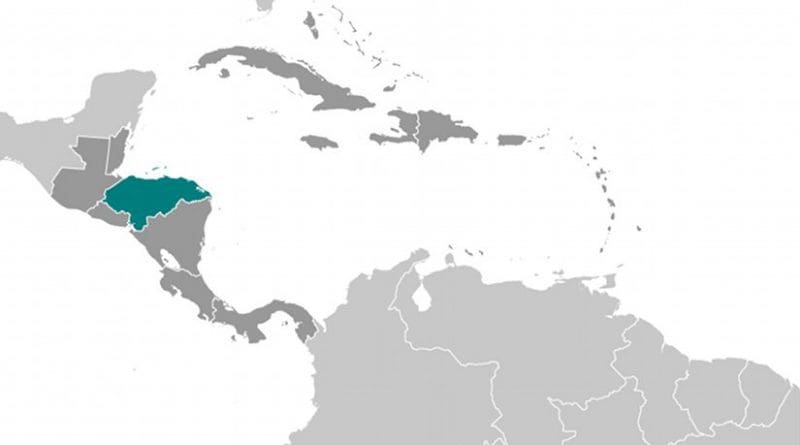New Investigative Report Into DEA-Related Killings In Honduras Finds Inconsistencies
By CEPR
A new, in-depth report from the Center for Economic and Policy Research (CEPR) and Rights Action has found glaring inconsistencies in the accounts of what occurred on May 11, 2012, when four people were shot and killed in a DEA-related counternarcotics operation in the Moskitia region of Honduras.
The report notes that while U.S. State Department officials have stated that the U.S. Drug Enforcement Administration (DEA) played only a “supportive role,” numerous eyewitness accounts describe North Americans in U.S. Army-style uniforms engaging in a central role in the operation, and that U.S. Embassy officials have admitted that the Honduran partners engaging in such joint operations report directly to the DEA.
The report also describes in detail the legitimate reasons that each of the shooting victims and survivors had to be in the vicinity of the operation in the early morning hours – in contrast to U.S. officials’ statements implying that they were likely involved in drug trafficking.
“What emerges in this report is a deeply disturbing depiction of Miskitu families from the region violently attacked in a military-style ambush,” CEPR’s Alexander Main, co-author of the report, said. “The government operatives involved seemed to have had a ‘shoot first, ask questions later’ approach, and children and women, at least one of whom was pregnant, were killed as a result.”
The report, “Collateral Damage of a Drug War,” concludes with a series of recommendations to the U.S. government, including a suspension of U.S. assistance to the Honduras Tactical Response Team (TRT) based on the human rights stipulation for U.S. assistance to foreign security forces set forth under the Leahy Law. While the U.S. decided last week to suspend assistance to the Honduran National Police while it investigated Police Chief Juan Carlos Bonilla Valladares’ past ties to death squads, it is not clear that the TRT is included in the suspension as it receives “training, guidance, and advice directly from U.S. law enforcement.” Yet it is the TRT that was involved in the May 11 incident, and which, according to Honduran and U.S. officials, was responsible for the shooting deaths.
The report is based primarily on extensive in-person interviews with survivors of the shootings, and many eyewitnesses in a nearby community who say they experienced beatings, humiliation, threats, and rough treatment by uniformed Americans in the hours following the shooting. Family members of shooting victims say the Americans prevented them from assisting their loved ones who had been shot. Other locals in the community say the soldiers stole gasoline and other items from them, and one man described being forced, at gunpoint, to ferry cocaine to a helicopter while his mother lay bleeding on a log in the river.
”The U.S. must find a way to deal with its drug problem that does not involve turning indigenous communities into combat zones,” commented the report’s co-author, Annie Bird of Rights Action.
The report notes that the investigation of the incident by Honduran authorities appears to be severely delayed and important investigative measures such as the interviewing of key witnesses have not been carried out, even though a former U.S. police detective employed by the U.S. Embassy provides technical support to the investigative team. DEA agents that participated in the May 11 operation have not been questioned, nor have ballistics tests been performed on their weapons.
The report also analyzes the impact of U.S. drug policy in the Moskitia region, and concludes that the “militarization and military-style tactics applied to drug interdiction efforts are negatively impacting Miskitu communities and are not yielding effective results.”
Researchers Alexander Main, Senior Associate for International Policy at CEPR, and Annie Bird, Co-Director of Rights Action, a human rights monitoring organization with decades of experience working in Central America, wrote the report based on interviews conducted last month, and other research. In addition to providing detailed eyewitness testimony, the accounts provided by U.S. officials, and a description of key evidence, the report also provides a summary of the Honduran authorities’ investigation into the incidents so far, and the legal measures being pursued by the survivors and their families.

